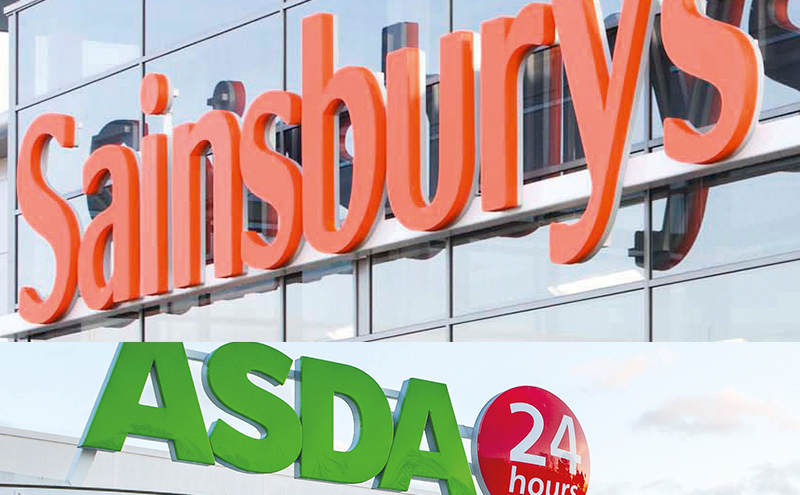Suppliers, retailers and shoppers could suffer

OBJECTIONS to the proposed merger of Sainsbury’s and Asda have been raised as part of the Competition and Markets Authority’s ongoing investigation of the deal.
The CMA invited views from a wide range of concerned parties including other supermarket groups, wholesalers and trade associations as well as not-for-profit organisations with an interest in the grocery sector.
Concerns raised by industry included questions over the impact the proposed merger could have on suppliers and, as a result, on the consumer.
The CMA noted that other respondents have warned the combined company would have increased buying power to the point that it could squeeze suppliers, reducing their margins and, “leaving them less able to innovate, having to reduce the quality of their products, lowering the standards applied in their supply chain or exiting the market completely.”
Financial failure and seeking out more attractive conditions in other markets were both highlighted by the CMA as potential reasons why a supplier may leave the UK market following the merger’s completion.
Other consequences, according to objectors, include suppliers having to charge higher prices to smaller retailers to recoup profits due to lower prices paid by the merged company, or prioritising supply to the bigger player; and reduced choice for shoppers.
The CMA said it will take all responses into account as it continues to investigate the proposed merger. A further ‘invitation to comment’ will open once the formal investigation begins. During this phase, the CMA is likely to contact stakeholders active in the markets affected by the merger including suppliers, retail competitors, industry bodies and consumer organisations, and there is likely to be a series of roundtable meetings.


















